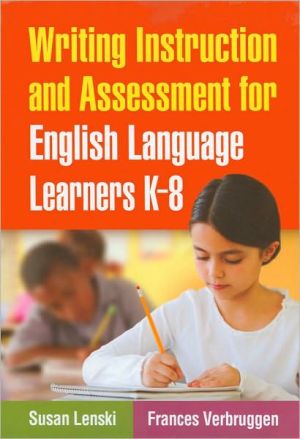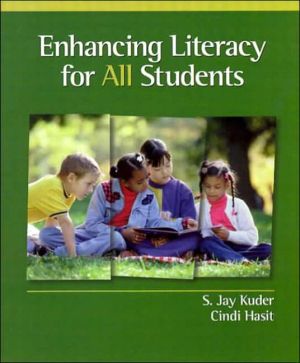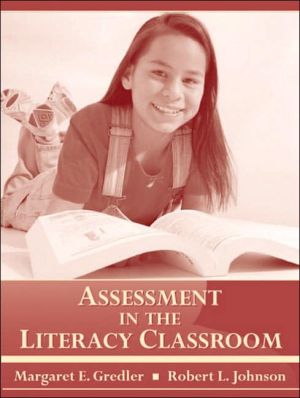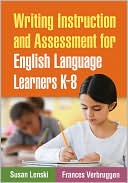Knowing Literacy: Constructive Literacy Assessment
American children are the most tested in the world, and the poor and the less competent are the most tested of all. We keep trying to improve literacy learning by developing new tests with better technical characteristics. But, as we shall see, all of this testing has had, if anything, the opposite effect. Our error has been in approaching the matter as if it were merely a technical problem—as if it were possible, even desirable, to exclude human judgment and values from the assessment...
Search in google:
American children are the most tested in the world, and the poor and the less competent are the most tested of all. We keep trying to improve literacy learning by developing new tests with better technical characteristics. But, as we shall see, all of this testing has had, if anything, the opposite effect. Our error has been in approaching the matter as if it were merely a technical problem-as if it were possible, even desirable, to exclude human judgment and values from the assessment process, and as if it were reasonable to treat children as psychological objects. Assessment is a profoundly human, social phenomenon, thoroughly value-laden, and it cannot be otherwise. And in order to draw valid conclusions about a child's learning, a teacher must understand how learning takes place. The very complexity of this is in knowing the available assessment options and understanding their consequences. In Knowing Literacy Peter Johnston sets forth the theoretical basis for today's assessment practices in the context of contemporary literacy learning theory. This comprehensive text will equip teachers with the knowledge and techniques to assess in ways that help their students develop a more thoughtful literacy. Part One describes the social and educational basis of literacy assessment, and develops an understanding of the knowledge required for accurate assessment, including the connections between a teacher's assessment practices and students' self-assessments. Part Two explores the personal, social, and intellectual nature of literacy and its development-what characteristics to notice and document and what they mean. Part Three illustrates methods of documenting that development in ways that will contribute to the growth of a democratic literacy. These chapters offer examples of checklists, report cards, portfolios, and observation forms, and discuss their possibilities and implications. Two chapters, co-authored with Marie Clay, are accompanied by an audiotape of children reading. These chapters and the tape show you step-by-step how to make and interpret running records of children's oral reading. Part Four is intended to change the ways we talk about children's literacy development. It provides ways to engage various members of the school community in productive conversations about literate teaching and learning. The final chapter helps us understand how to keep track of literate development without losing our way and forgetting the point of literacy learning. Voices From the Middle Eschewing terms such as testing and evaluation and assessment, Johnston's book (with two chapters cowritten by Marie M. Clay) begins with two basic premises: (1) teachers are forced to make instructional decisions "on the run at an alarming rate with little time to reflect, and mostly without recourse to ... data such as test scores," and (2) the most valuable assessment tool is the teacher's ability to listen, for "active listening is at the heart of literacy." Johnston takes these two ideas to their natural conclusions and provides great insight and practical suggestions for restoring humaneness to the evaluative process. Divided into four main parts, Part Three includes an audiotape that produces enormously helpful step-by-step directions for making and interpreting students' oral reading records. This book is a must.
\ Language ArtsPeter Johnston's work clearly and consistently demonstrates his commitment to constructivism and democratic values. Johnston offers commendable challenges and practical suggestions for changes in traditional school practice. Knowing Literacy: Constructive Literacy Assessment would be an ideal text for pre-service and in-service teachers, who could implement the assessment strategies Johnston has described in supervised field placements.\ \ \ \ \ Voices From the MiddleEschewing terms such as testing and evaluation and assessment, Johnston's book (with two chapters cowritten by Marie M. Clay) begins with two basic premises: (1) teachers are forced to make instructional decisions "on the run at an alarming rate with little time to reflect, and mostly without recourse to ... data such as test scores," and (2) the most valuable assessment tool is the teacher's ability to listen, for "active listening is at the heart of literacy." Johnston takes these two ideas to their natural conclusions and provides great insight and practical suggestions for restoring humaneness to the evaluative process. Divided into four main parts, Part Three includes an audiotape that produces enormously helpful step-by-step directions for making and interpreting students' oral reading records. This book is a must.\ \





